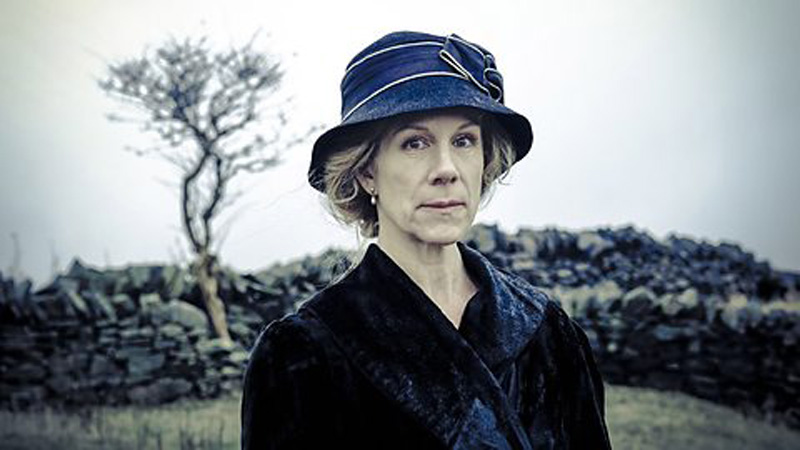The Village series two: ‘It’s not as bleak this time around,’ says Juliet Stevenson

The latest updates, reviews and unmissable series to watch and more!
You are now subscribed
Your newsletter sign-up was successful
Want to add more newsletters?

ONCE A WEEK
What to Watch
Get all the latest TV news and movie reviews, streaming recommendations and exclusive interviews sent directly to your inbox each week in a newsletter put together by our experts just for you.

ONCE A WEEK
What to Watch Soapbox
Sign up to our new soap newsletter to get all the latest news, spoilers and gossip from the biggest US soaps sent straight to your inbox… so you never miss a moment of the drama!
It was gripping drama but BBC1’s The Village was also difficult to watch last year as it told a fictionalised story of Britain in World War 1 through the residents of a Derbyshire community.
Starring John Simm and Maxine Peake as farmer John Middleton and his wife, Grace, the drama covered the grim reality of their hand-to-mouth existence and the loss of their son, Joe, shot for desertion.
The village’s resident aristocrats, headed by Juliet Stevenson as Lady Allingham, fared little better. Her disfigured husband killed himself and their troubled daughter, Caro, gave birth to an illegitimate son by Joe Middleton.
“There was something very beautiful about looking at that war without rose-tinted spectacles, and at the people who suffered those appalling losses,” Juliet told the Daily Express. “But the writer and producers got the message that people found it a bit too bleak at times and have responded with a lot more lightness and positivity this time around.”
So series two of The Village roars into the 1920s, with its promise of change as the motor car arrives along with jazz, family planning charity Marie Stopes, vacuum cleaners, radical politics and a reassessment of the class system.
“There is that feeling that we lost a whole generation in the trenches, so let’s just live - and to hell with responsibility,” Juliet says. “You get a sense of women evolving quite quickly after the liberation they experienced while working during the war.”
The Middletons are on the up, says John Simm, as his character John moves into dairy farming. “An unexpected talent for business surfaces, and perhaps because of this, there is a subtle but significant shift in John’s attitude to politics as time goes on,” John says.
The latest updates, reviews and unmissable series to watch and more!
But his wife Grace hankers for more freedom. She experiences a political awakening with the arrival of Labour councillor Bill Gibby (Derek Riddell), which gives her a chance to fulfil her promise to son Joe to make the world a better place.
“Grace hears Bill Gibby speak and gets quite impassioned,” says Maxine Peake. “Grace has never come into contact with a man like him – passionate, political, self-educated. She is swept off her feet. She feels she has found a kindred spirit.”
Politics help Grace to find her voice, but this causes ructions in the marriage.
“John’s stubbornness, ignorance and single-minded work ethic, coupled with Grace becoming more and more interested in politics and having her head turned - by literature, poetry, and ultimately romantic temptation - are things John doesn’t see until it’s too late,” says John Simm.
The Allingham family has moved to a grander house and the political career of Lady Clem’s son, Edmund (Rupert Evans), is on the rise. At the end of series one, Juliet’s character, Clem, found the war and tragedy were great levellers, but now she has returned to her old-fashioned views and continues to meddle in her children’s lives.
This involves finding a suitable wife for Edmund, which he’ll need as a politician - despite being gay. Cupid’s arrow also finds Clem when she meets Lord Kilmartin, Edmund’s political sponsor, played by A Room With A View’s Julian Sands.
Writer Peter Moffat and the BBC hope to cover the entire 20th Century in subsequent series, so it appears that our adventures with the residents of The Village have only just begun.
The Village is expected to return to BBC1 in the winter.

